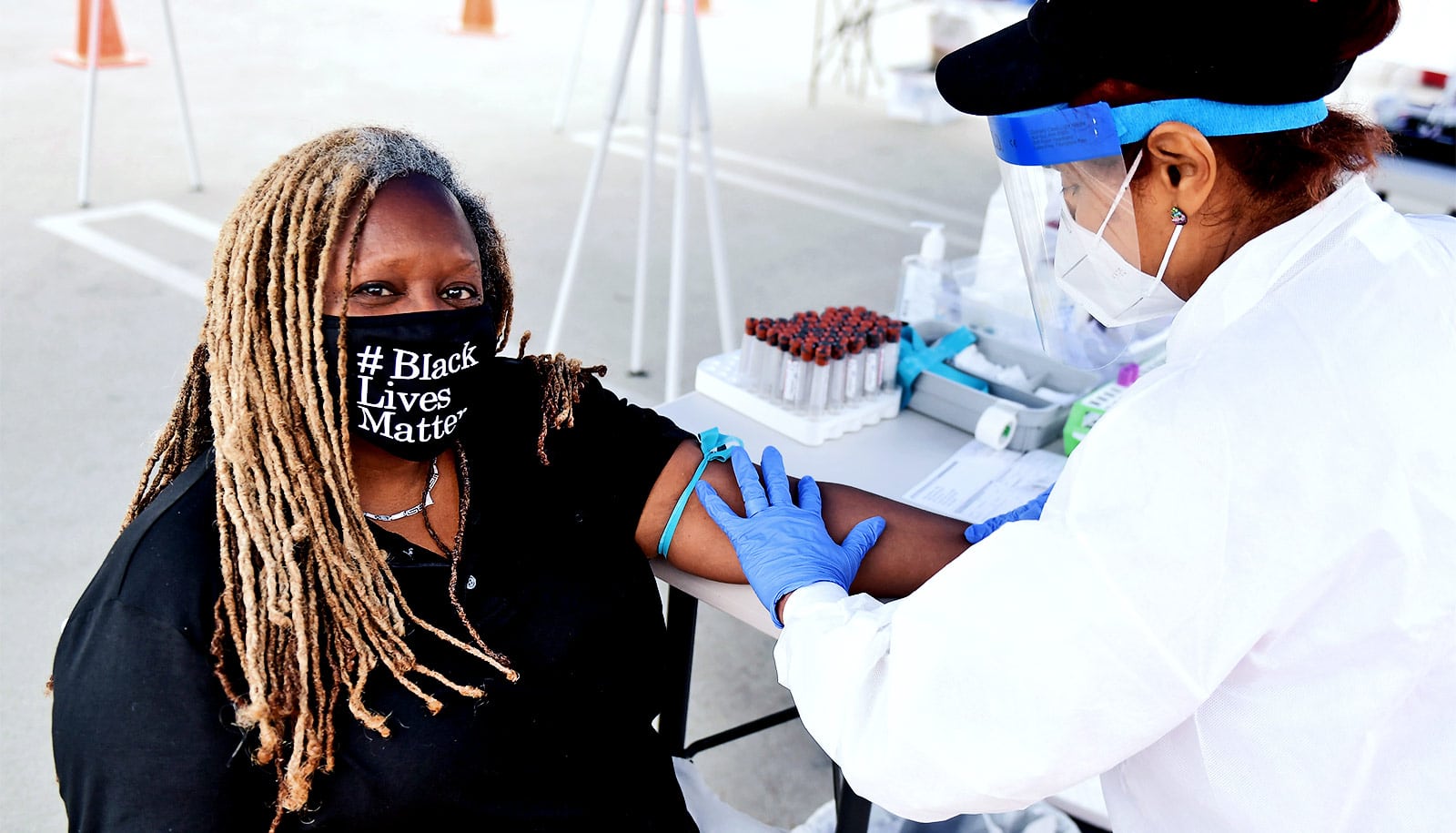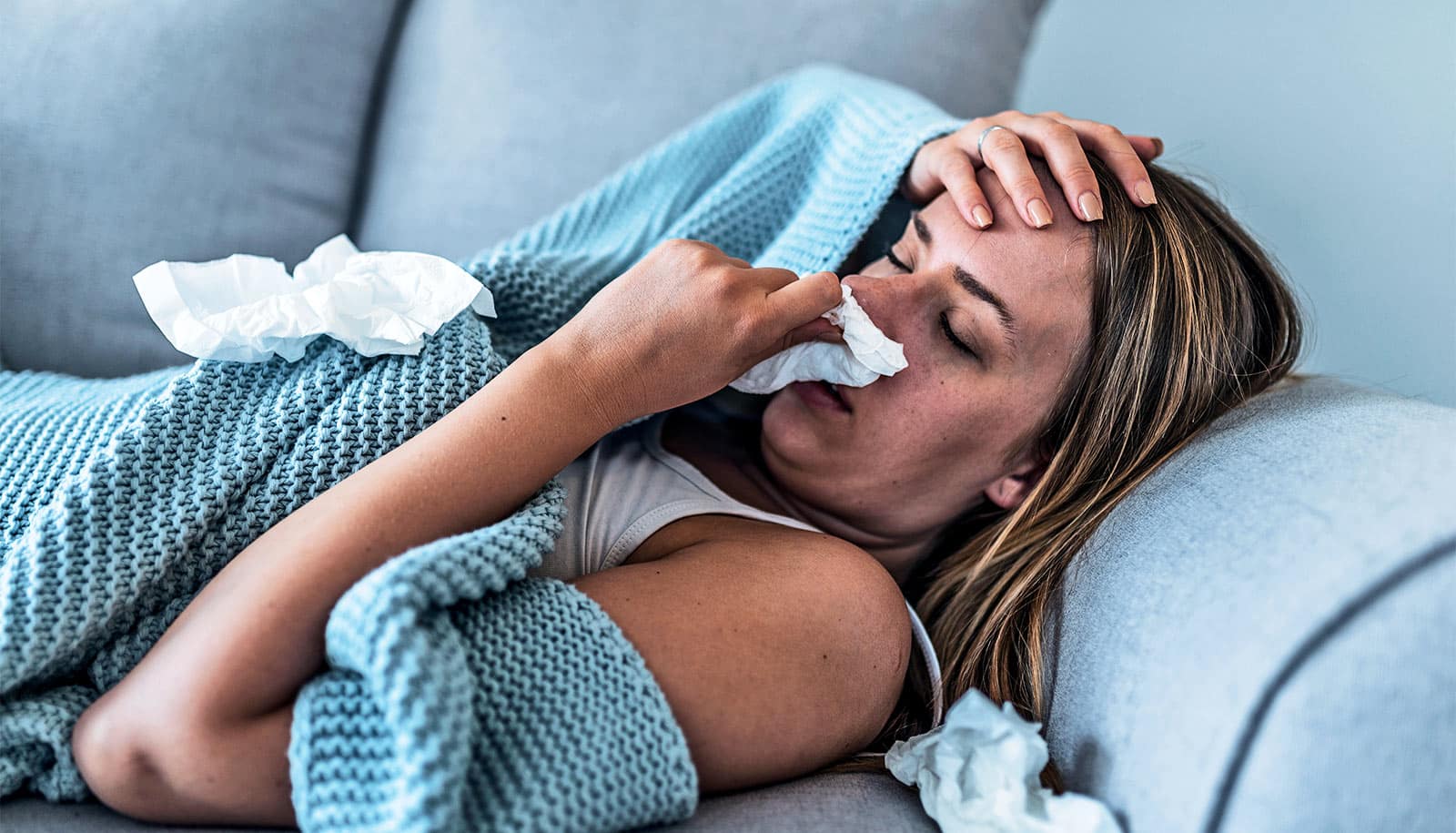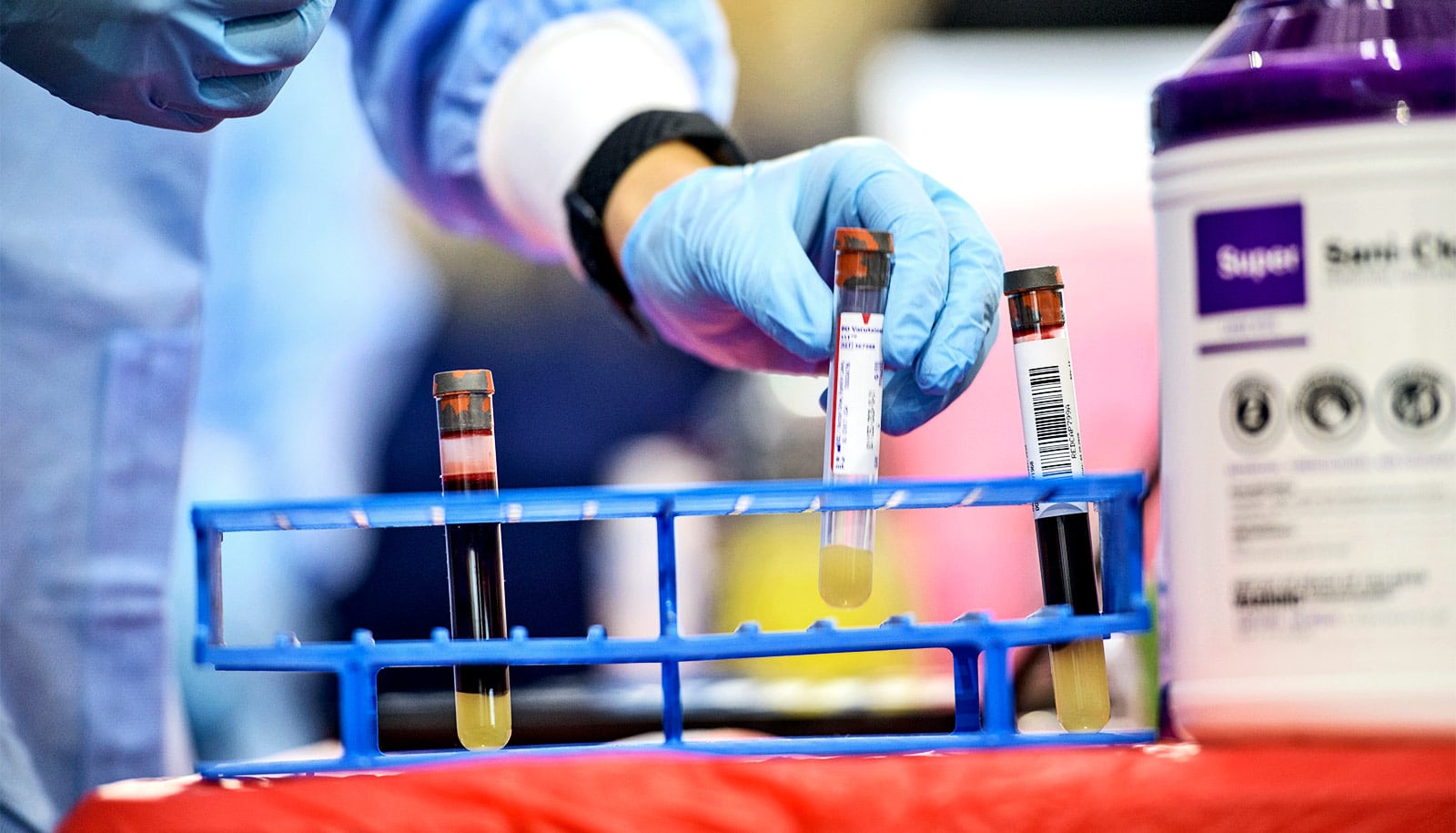
ECWA Neighborhood Council Chair Gina Fields (L) is seen at a free COVID-19 SARS-CoV-2 serology antibody testing community event, hosted by GUARDaHEART Foundation and Baldwin Hills Crenshaw Plaza, at Baldwin Hills Crenshaw Plaza on August 05, 2020 in Los Angeles, California. (Credit: Matt Winkelmeyer/Getty Images )
SARS-CoV-2 antibodies last days for some, decades for others
"...the longevity of functional neutralizing antibodies against SARS-CoV-2 can vary greatly and it is important to monitor this at an individual level."
Antibodies against SARS-CoV-2 wane at different rates, lasting for days in some people, while remaining in others for decades, researchers have found.
The new study shows that the severity of the infection could be a deciding factor in having longer-lasting antibodies.
People with low levels of neutralizing antibodies may still be protected from COVID-19 if they have a robust T-cell immunity.
The researchers followed 164 COVID-19 patients in Singapore for six to nine months, analyzing their blood for neutralizing antibodies against SARS-CoV-2, T cells, and immune system signaling molecules. They then used this data to establish a machine learning algorithm to predict the trajectories of peoples’ neutralizing antibodies over time.
“The key message from this study is that the longevity of functional neutralizing antibodies against SARS-CoV-2 can vary greatly and it is important to monitor this at an individual level. This work may have implications for immunity longevity after vaccination, which will be part of our follow-up studies,” says Wang Linfa, a professor in Duke-NUS’ Emerging Infectious Diseases (EID) Programme and a corresponding author of the study.
The researchers were able to categorize people into five groups depending on how long their antibodies lasted. The first group, who never developed detectable neutralizing antibodies (also called the “negative” group), comprised 11.6% of the patients in the study. The “rapid waning” group (26.8%) had varying early levels of antibodies that waned quickly. The “slow waning” group (29%) tested mostly positive for antibodies at six months. The “persistent” group (31.7%) showed little change in their antibody levels up to 180 days and, finally, the “delayed response” group (1.8%) showed a marked rise in neutralizing antibodies during late convalescence.
While this study focused on determining the levels of neutralizing antibodies, which are part of the body’s comprehensive immune defense system, the other important aspect of an effective immune defense is T-cell immunity. The study shows that the patients tested, including those from the “negative group,” displayed sustained T-cell immunity six months after initial infection. This shows that individuals may still be protected if they have a robust T-cell immunity when the neutralizing antibody level is low.
“Our study examines neutralizing antibodies which are important in protection from COVID-19. We found that antibodies against SARS-CoV-2 wane in different people at different rates. This emphasizes the importance of public health and social measures in ongoing pandemic outbreak response. However, the presence of T-cell immunity provides hope of longer-term protection which will require more studies and time for epidemiological and clinical evidence to confirm,” says corresponding author David Lye, an associate professor in and director of the Infectious Disease Research and Training Office, NCID.
“This study reminds us that we all react differently to infection and that various people mount different protective immune responses. Understanding the basis of these differences will help build better vaccines,” adds Laurent Renia, executive director at A*STAR Infectious Diseases Labs.
The findings are important as policymakers design vaccination programs and pandemic exit strategies. The rate of antibody waning suggests reinfection may occur in subsequent waves of infection. Also, if immunity provided via vaccinations wanes like naturally-produced antibodies, then annual vaccine administration could be necessary to prevent future outbreaks of COVID-19. Further research will be needed to clarify this as vaccine programs are rolled out.
The research appears in The Lancet Microbe .
Source: Duke-NUS
The post SARS-CoV-2 antibodies last days for some, decades for others appeared first on Futurity .
Share this article:
This article uses material from the Futurity article, and is licenced under a CC BY-SA 4.0 International License. Images, videos and audio are available under their respective licenses.
Related Articles:
Immunity to past colds might make COVID-19 worse
March 7, 2022 • futuritySARS-CoV-2 immunity lasts for at least 5 months
Oct. 15, 2020 • futurityLinks/images:
- https://www.futurity.org/canada-antibodies-covid-19-2410732-2/
- https://www.futurity.org/pregnant-moms-sars-cov-2-antibodies-2511682/
- https://doi.org/10.1016/S2666-5247(21)00025-2
- https://www.duke-nus.edu.sg/allnews/media-releases/sars-cov-2-antibody-immunity-lasts-days-to-decades
- https://www.futurity.org/?p=2538102
- https://www.futurity.org


